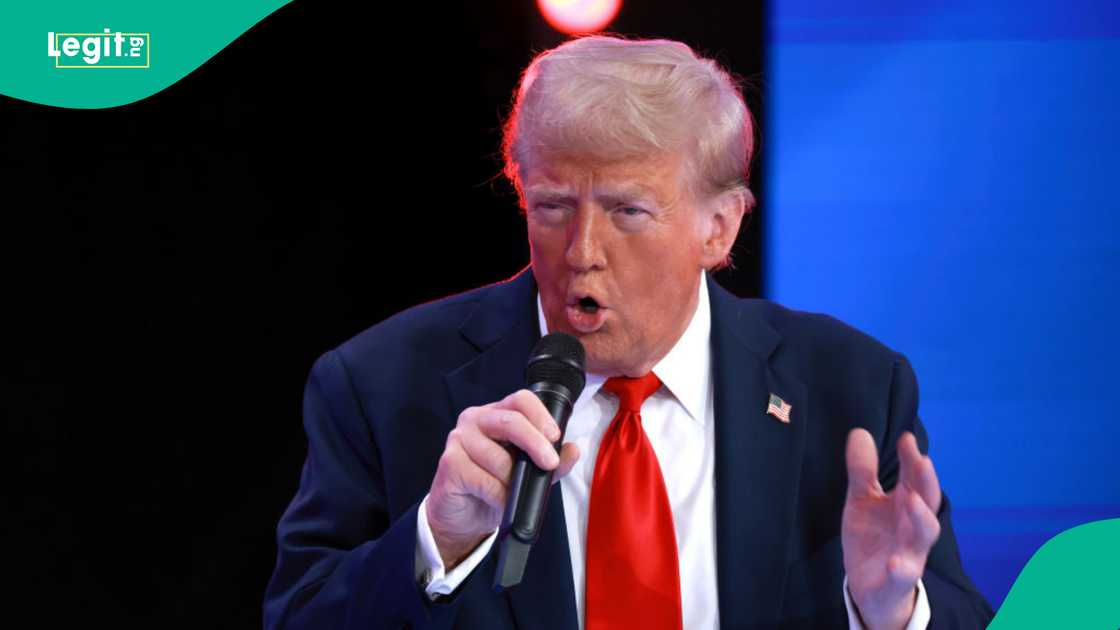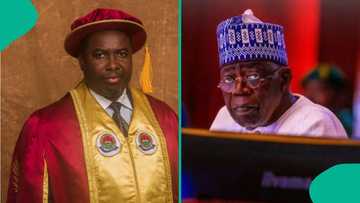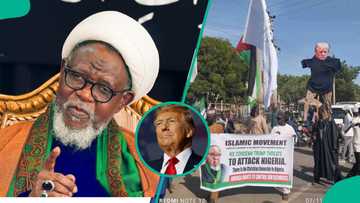“Retract Your Statement”: NSCIA Rejects Trump’s Country of Particular Concern Label for Nigeria
- The Nigerian Supreme Council for Islamic Affairs has condemned the US' decision to label Nigeria a “country of particular concern”, calling it politically driven and misleading
- NSCIA secretary-general, Ishaq Oloyede, said Nigeria’s security crisis is not a religious war, but a result of poor governance and criminality
- The council also urged President Donald Trump to retract the designation and support Nigeria through genuine partnership and collaboration
The Nigerian Supreme Council for Islamic Affairs (NSCIA) has strongly rejected the designation of Nigeria as a “country of particular concern” (CPC) by US president, Donald Trump.
Speaking at a press conference in Abuja on Sunday, November 9, 2025, following a meeting of Islamic organisations nationwide, NSCIA secretary-general, Ishaq Oloyede, said Nigeria’s security challenges are complex but not rooted in religion. He described Trump's move as politically motivated and misleading.

Source: Getty Images
“The security situation in Nigeria is multidimensional but not a religious war,” Oloyede stated, adding that the CPC label was “an act of political cynicism”.
NSCIA blames poor governance, not religion
Oloyede argued that Nigeria’s instability stems from poor governance, climate stress, and criminality — not religious persecution.
He criticised the portrayal of Nigeria as a country enabling “Christian genocide”, calling it a false narrative pushed by “Islamophobic and unpatriotic groups” in the United States.
“It is very unfortunate that the President of the United States labelled our country in such disgraceful terms,” he said. “Nigeria deserves collaboration and support, not the use of derogatory language from a supposed partner.”
Genocide claim dismissed by Islamic leaders
The NSCIA said the US designation appeared to be a pretext to destabilise Nigeria. It cited international conventions, including the Rome Statute, which define genocide as requiring intent to destroy a particular group — a condition the council said does not apply to Nigeria.
Oloyede referenced research from Amnesty International and the International Crisis Group, noting that both Muslims and Christians suffer from widespread violence.
“Terrorist groups like ISWAP and Boko Haram kill indiscriminately — they attack mosques and churches; they do not differentiate. These terrorists are not representatives of Islam; they are its enemies,” he said.
Foreign actors accused of exploiting Nigeria’s crisis
The NSCIA also accused certain US politicians and Nigerian separatists of using the country’s crisis for personal gain.
“There are foreign instigators who exploit this situation to energise their domestic evangelical base. Some Nigerians abroad also fabricate stories of persecution to obtain asylum and media visibility,” Oloyede said.
NSCIA urges unity and rejects foreign interference
The council expressed disappointment with the Christian Association of Nigeria (CAN) for “amplifying falsehoods”, while praising Christian leaders who acknowledged that the violence was not religiously driven.
Oloyede called on the Nigerian government to protect all citizens and hold both local and foreign actors accountable. He warned that further CPC designations would harm all Nigerians.
“Running to America or foreign lobbyists will not solve Nigeria’s problems. If Nigeria is again designated as a country of particular concern, all citizens will suffer — Muslims and Christians alike,” he said.
The NSCIA urged President Trump to retract his remarks and instead offer meaningful support through intelligence sharing, logistics, and capacity building.
“Partnership, not prejudice, is what Nigeria needs. We will not allow our country to be fragmented by a foreign agenda. Our unity as a nation will endure,” Oloyede added.
AU rejects Trump’s threat against Nigeria
Legit.ng earlier reported that the African Union Commission (AUC) reaffirmed its strong support for Nigeria’s sovereignty, religious freedom, and constitutional governance following remarks by Trump suggesting possible military action against terrorist groups in the country.
In a press release issued on November 6 via its official X account, the AUC stressed the importance of diplomacy and constructive engagement, warning against external threats that could destabilise regional peace.
Proofreading by James Ojo, copy editor at Legit.ng.
Source: Legit.ng




